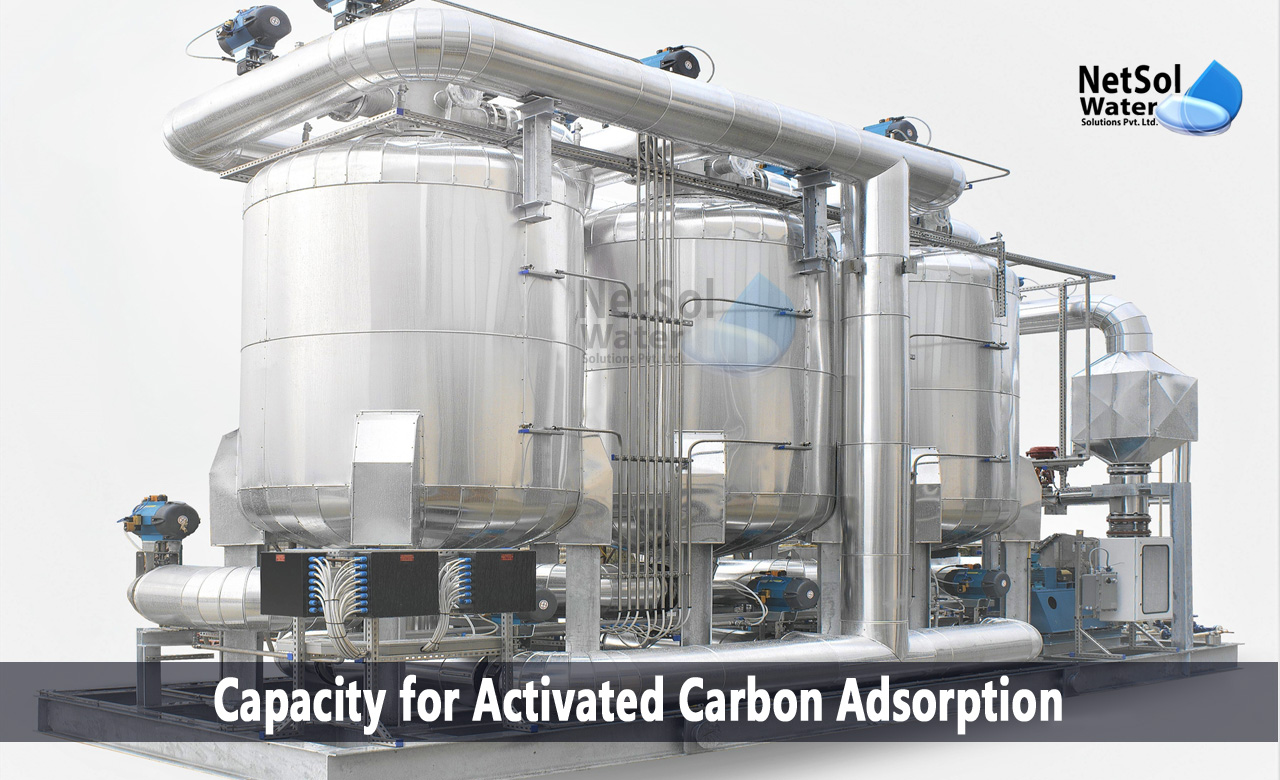Netsol Water are able to provide a broad selection of industrial water filters that can be tailored, to the specifications and needs of any given project. We also offer high-quality activated carbon filters and RO Plants, which are appropriate for any application in tertiary water treatment, and water purification.
Let’s look at variables and factors that affect the capacity for adsorption in activated carbon.
A number of variables affect an activated carbon's capacity. Following is a list of the key ones.
· Typical pore size
The most effective holes for adsorbing a substance should have a diameter that is two to five times larger, than the compound's molecule. It cannot accommodate the molecule if it is smaller. The carbon will exhibit a preference for molecules with more mass if it is larger. This is due to how strongly carbon adsorbs molecules based on their mass.
· The distribution of pores
It needs transit pores in addition to the pores where the majority of the adsorption phenomenon will take place. They have a wider diameter, which helps with diffusion.
· The surface area
Since, adsorption is a phenomenon of surfaces, an activated carbon's capacity increases with surface area.
· Chemistry on surfaces
Activated carbon can be created using different oxidation types and intensities. At the edges of the graphitic plates, oxides form as a result of the oxidation of an activated carbon. If the oxides have an acidic nature, they will draw in basic molecules while repelling acidic ones.
· Distribution of activated carbon's particle sizes
The adsorption kinetics is influenced by the carbon's particle size, whether it is powder, granular, or pelletized. The average carbon particle size essentially has no impact on the surface area of the carbon.
Although this size is smaller, the carbon's pores are shorter and have more access pathways. As a result, the adsorption kinetics is significantly increased.
How to calculate Capacity for Activated Carbon Adsorption?
· Covalent or ionic character
Because it is a covalent solid, activated carbon preferentially binds to molecules that have a stronger covalent nature.
· Acidic or alkaline groups present
The propensity of an activated carbon for molecules with acidic or basic groups to rise or decrease, depends on how oxidized it is on its surface. The acidic or basic nature of the oxides that make up the carbon, as well as the presence of acidic or basic groups in the adsorbate, will determine whether this preference rises or diminishes.
· Size and mass of molecules
The highest mass molecules that will fit in the pores of activated charcoal are preferred.
· Molecular form (linear, branched, cyclic)
More easily able to enter holes are rounded molecules, such as cyclic or branching ones. Since larger, more angular molecules may only enter the pores of carbon when they are in the right relative orientation, thus, they enter more slowly. It is known as the steric effect.
Connection with the fluid to be treated
Presence of adsorbates that compete with those that must be retained, but are not required to be retained. The activated carbon's useful life is shortened by competition with molecules, which do not need to be separated from the fluid.
· Thermodynamics and viscosity
The viscosity of liquids decreases with increasing temperature, increasing the pace at which the adsorbates diffuse both outside and inside the pores. Almost always, this result outweighs the reduction in adsorption capacity, which decreases the higher temperature.
The viscosity of gases increases with increasing temperature. This is bad because it prevents the adsorbates' diffusion. It is also unfavourable since it reduces the carbon's ability to adsorb. Consequently, it is preferable that it be cold.
· Aqueous solution pH
The pH typically has a significant impact on an activated carbon's ability to adsorb. Low pH solutions are suitable for absorbed weak acid adsorbates. Strong pH solutions are ideal for adsorbed weak base adsorbates.
The reaction rate between activated carbon and oxidant molecules, such as free chlorine, ozone, hydrogen peroxide, potassium permanganate, is also influenced by the pH. The reaction rate is often higher when the pH is lower.
· Flow cross-sectional area and bed depth
The more turbulence there is in a carbon bed, the thinner it is, and the more adsorbates diffuse out of the carbon's pores. Additionally, it improves the link between bed depth and the mass transfer zone, improving coal use.
· Volumetric flow of the fluid being treated and the carbon bed's volume are related
The contact period between the carbon and the fluid will be longer when this ratio is larger, which is ideal.
· Turbulence in motion
The diffusion of adsorbates outside the carbon particles increases, with increased turbulence. This is really advantageous.
How can we assist?
With supply all over the world, Netsol Water maintains an exclusive contract that enables us to offer water and wastewater treatment products of unrivalled quality, at incredibly affordable prices.
Netsol Water is Greater Noida-based leading water & wastewater treatment plant manufacturer. We are industry's most demanding company based on client review and work quality. We are known as best commercial RO plant manufacturers, industrial RO plant manufacturer, sewage treatment plant manufacturer, Water Softener Plant Manufacturers and effluent treatment plant manufacturers. Apart from this 24x7 customer support is our USP. Call on +91-9650608473, or write us at enquiry@netsolwater.com for any support, inquiry or product-purchase related query.



